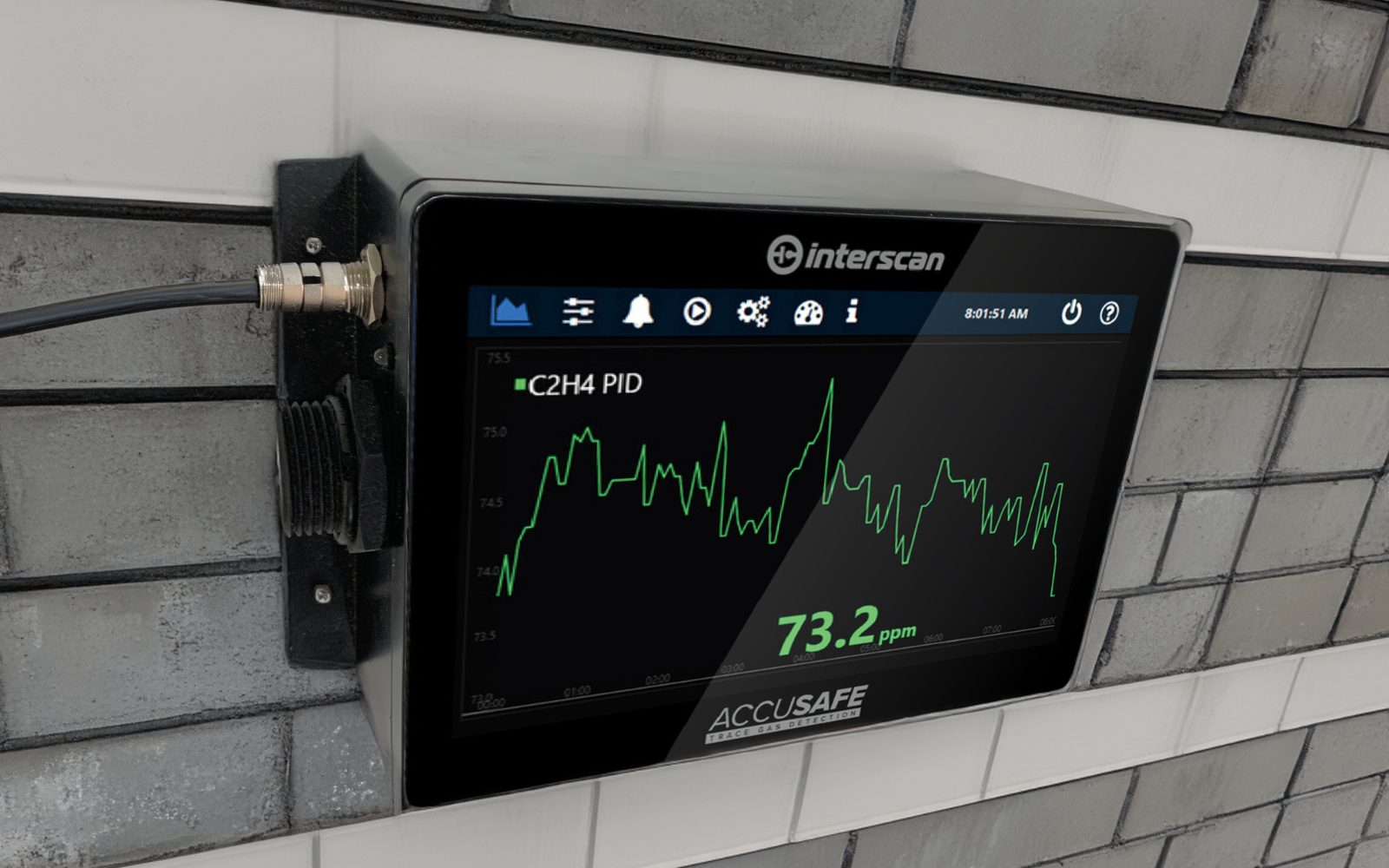- Yes, fixed gas detectors are necessary to provide continuous air monitoring for hazardous gases in stable and risky areas in workspaces without human intervention.
- Fixed gas detectors can be connected to alarm systems and building management software to provide crucial safety chain reactions, even without human intervention.
- Fixed gas detectors keep personnel safe and healthy, protect the facility, and help in regulatory compliance.
Gas detectors are essential to protecting personnel from toxic and hazardous gases and vapors. This article explains when, why, and who needs fixed gas detection systems in their workspaces.
What is a Fixed Gas Detection System?
Fixed gas detection systems are permanent equipment installed to continuously monitor the ambient air for hazardous gases and vapors 24 hours/day in dangerous areas or a central location. The detectors display readings and have visual and audio alarms like sirens and lights to alert staff of leaks. The fixed systems can notify external and internal emergency responders and be linked to control applications or building management systems that shut down machinery or valves to stop gas emissions.
More than one sensor can be connected to a central controller, as in Interscan’s AccuSafe fixed systems. Each AccuSafe can have up to ten sensors connected via Modbus TCP/P to the controller, so distance is not a problem when monitoring and recording gas concentrations. The data logger records the information that can help in facility performance testing, maintenance, and compliance.
When is Gas Detection Necessary?
Fixed gas detectors are necessary when your facility uses or produces hazardous gases, such as explosive or toxic gases, with oxygen variations that workers will encounter.
- Examples of toxic gases are hydrogen sulfide, carbon monoxide, ammonia, chlorine, etc.
- Combustible gas examples are hydrogen, methane, and propane.
Though fixed and portable gas detectors are used to keep the workplace safe, they have different applications and functions. Fixed detection systems are necessary in any of the scenarios listed below:
- Dangerous conditions: When employers cannot completely eliminate the risk of hazardous gases being accidentally released through engineering controls, continuous gas detection, along with portable gas detectors, is necessary.
- Work without precautions: Fixed detection systems must be used when there is a chronic hazard risk in areas where personnel work without special precautions.
- Low control: Work areas where control over activities are not controlled require continuous monitoring.
Engineering controls, like ventilation or shutting off valves linked to the fixed detection systems, can reduce gas levels to make spaces safer for working and reduce downtime.
Benefits of Fixed Gas Detection
Safety managers will gain several advantages when they choose fixed gas detection, such as the following:
Safe workspaces: Employers can ensure safe working conditions, as a fixed gas detection system is more efficient in air monitoring since it functions 24/7 without breaks.
Timely alerts: Fixed detectors provide warning, allowing personnel time to evacuate safely and shut down machinery to prevent potential explosions that can harm the facility.
Training level: No personnel training is necessary to operate the gas detection device except for calibration. It also reduces worker procedures while entering the monitored area.
Cost-effective: Fixed gas detection systems are cost-effective as they require no operating personnel and eliminate the need to provide each worker with portable gas detectors, which can be expensive.
Compliance with regulations: Continuous data collected by fixed gas detectors can provide data to show compliance with prescribed limits by the Occupational Safety and Health Administration.
Who Should Use Fixed Gas Detectors?
Several workplaces can benefit from using fixed gas detectors. Employers and safety managers of the following organizations need fixed gas detection systems:
- Wastewater management
- Medical facilities
- Oil and gas industries
- Refining
- Petroleum extraction
- Construction
- Aerospace
- Power generation
- Chemical Production
- Mining
- Metallurgy
- Pulp industry
- Pharmaceutical Industry
- Fertilizer production
- Defense
- Manufacturing facilities, such as artificial textiles, semiconductors, etc.
The gases industries emit depend on their operations. Acute and chronic exposure can lead to health problems, from minor complaints to long-lasting damage to organs and sometimes even death.
Invest in Reliable and Accurate Gas Detection Systems
Therefore, it is necessary to have gas detection systems that detect all the dangerous gases and vapors that could be emitted in a facility. These can be sensors for individual gases or detectors that detect multiple gases. The AccuSafe Gas Detection System offers advanced individual sensors for continuous gas monitoring of twenty hazardous gases and is designed to meet the needs of several industries.
Written by:
 Vijayalaxmi Kinhal
Vijayalaxmi Kinhal
Science Writer, CID Bio-Science
Ph.D. Ecology and Environmental Science, B.Sc Agriculture
Sources
Katzel, J. (1996). What you need to know about fixed gas detection systems. Plant Engineering, 50(8), 54-59.
Turner, H., & Easterwood, A. (2019). Tips for Choosing & Placing: FIXED GAS DETECTORS. Professional Safety, 64(10), 58-58.


